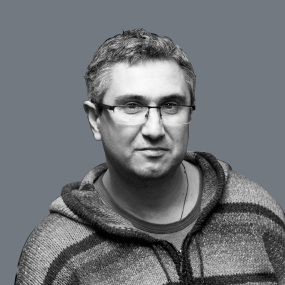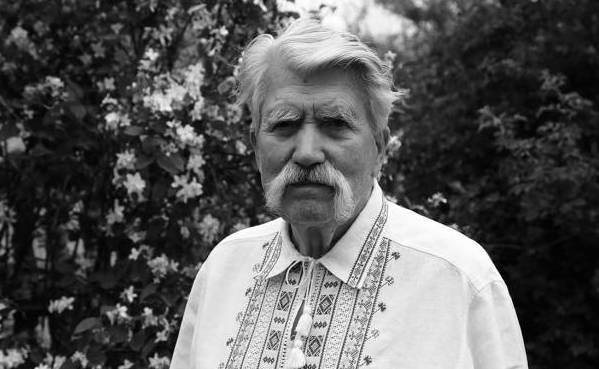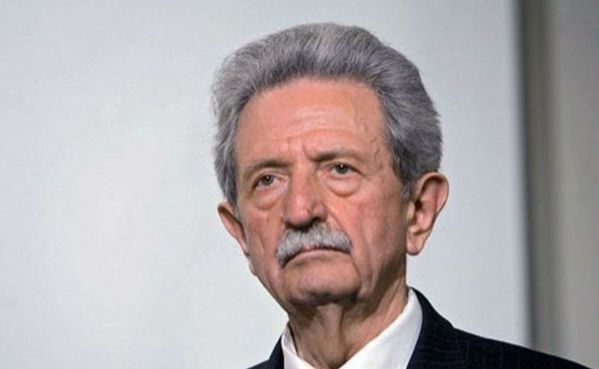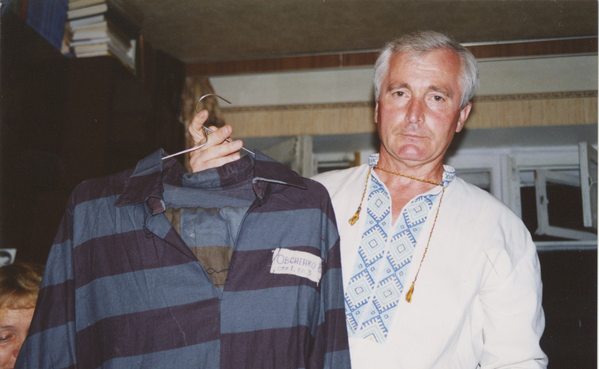Valentyn Moroz
Moroz Valentyn Yakovych (b. 15 April 1936, Kholoniv village, Horokhiv district in Volyn region today, then – Wołyń Voivodeship of Poland, – d. 16 April 2019, Lviv).
By education, Valentyn Moroz was a historian. After his studies in the Lviv University, he started writing a dissertation, taught in a village school, and later – at Lutsk and Ivano-Frankivsk pedagogical institutes.
In Lutsk, Moroz became a member, and later the head of the informal "Poetic Word Club", that turned from a literary club into a dissident one. In Ivano-Frankivsk, pro-Ukrainian educators coalesced around him. Moroz was in contact with dissidents from other cities, and distributed underground publications.
On 1 September 1965, Valentyn Moroz was detained in Ivano-Frankivsk. The educator was charged with "anti-Soviet campaigning and propaganda". He was tried in Lutsk, along with his comrade, Dmytro Ivashchenko. The court sentenced Moroz to four years in a maximum security penal colony.
The dissident served his term in Mordovia. He wrote a work there titled "Report from the Beria Reserve", where he described his detention conditions. The text made it onto freedom, got published in the underground press, and distributed to various corners of the USSR.
After serving the colony term in full, in 1969 Moroz was released. The punishment never "re-educated" him. Moroz wrote articles "Amidst the Snows", "Chronicle of Resistance", "Moses and Dathan" which were distributed not unlike "Report…".
In his publications, Moroz appeared as a supporter of the integral nationalism ideas, and his radical position regarding some matters was disapproved by many other dissidents. In a similar vein, the bystanders often remember that his courage and intellect mixed with propensity towards conflict and arrogance.
Moroz's freedom did not last long – in 1970 he was arrested for the published articles for the second time. The trial took place in Ivano-Frankivsk, and was held in camera. According to the sentence, Moroz, who was declared an "especially dangerous recidivist", had to spend six years in a special prison, three yeasr in camps, and five years in exile.
Moroz served his prison term in the notorious "Vladimir Central Prison", and the camp term – in Mordovia. He joined hunger-strikes and other protests the prisoners set. At the same time, his ethnonationalistic views and reputation of an anti-Semite led to conflicts with other political prisoners, – Jews, Russians, and Ukrainians who felt Moroz was discrediting the Ukrainian national movement.
Valentyn Moroz became one of the most distinguished Ukrainian political prisoners in the West. A large-scale campaign for his release was launched in America and Europe.
In 1979, the Soviet government made concessions. Moroz and four more dissidents were exchanged for two Soviet spies sentenced in the US. They were officially stripped of their Soviet citizenship and expelled from the country.
Abroad, Valentyn Moroz lived in the United States at first, then – in Canada. He taught at Harvard University and worked for a radio company. He published "Anabasis" magazine, spoke at diaspora political events, founded the Ukrainian nationallistic organization "Lytsari Sviatoslava" (lit. – "Sviatolav's Kinghts"). Because of his temper, Moroz fell out with nearly all foreign Ukrainian societies.
In 1991, Valentyn Moroz returned to Ukraine and settled in Lviv. He taught at local universities, and engaged in journalism. He passed away and was buried in Lviv.
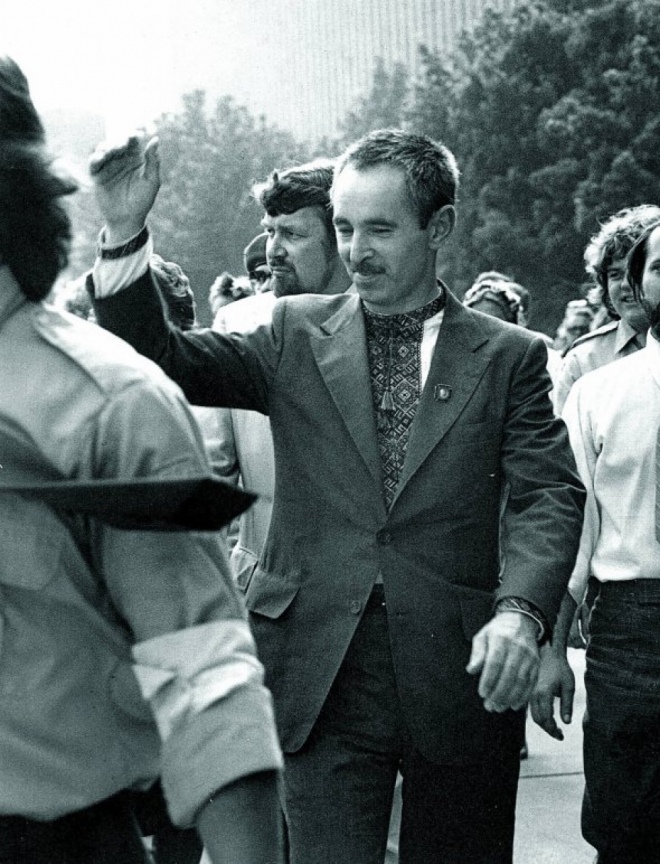
Повне інтерв'ю читайте у книзі "Дисиденти".


